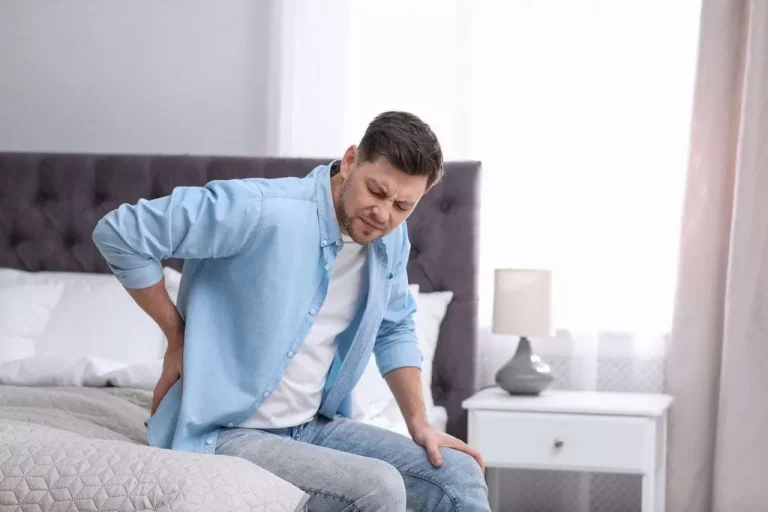
Medical providers are likely to recommend abstaining from alcohol when sleep disturbances are a major concern.15 If you struggle with both insomnia and alcohol misuse or addiction, psychotherapy and medication are potential treatments for both issues. Things are a little more complicated for those with an alcohol abuse problem. Studies show mixed results, with alcohol insomnia and related sleep disruptions lasting from five weeks to six months. Everyone reacts differently to alcohol, though, so you may want to cut yourself off sooner. Research shows alcohol consumption can affect sleep even if you stop drinking six hours before bed. For casual drinkers, there are several steps you can take to stop alcohol from disrupting your sleep.
Problems associated with drinking before bed
Retrospectively, subjects with AD reported the presence of insomnia prior to the onset of AD (Currie et al., 2003a). Sleep disturbance has been shown to predict subsequent alcohol consumption in adolescents and adults (Breslau et al., 1996, Wong et al., 2004, alcohol insomnia Wong et al., 2010, Wong et al., 2015, Ford and Kamerow, 1989, Weissman et al., 1997). This association may be secondary to subjects self-medicating their insomnia with alcohol (Kaneita et al., 2007, Ancoli-Israel and Roth, 1999, Johnson et al., 1998).
- Long-term alcohol use negatively affects REM cycles and decreases sleep quality.
- Those effects of alcohol on the biological clock appear to persist even without additional drinking, according to research.
- When people in America notice they’ve developed issues falling asleep, their first reaction is often to have a drink.
- These datasupport the hypothesis that diminished gray matter volume in chronic alcoholismcontributes to an impaired ability to generate large amplitude slow waves, although notall the variance could be explained by loss of volume.
Be a sleep-smart drinker.

Estimatedlifetime alcohol consumption was higher in alcoholic men than women, and the women hadlonger periods of sobriety prior to testing on average. Studies that include larger groupsof male and female alcoholics are needed to further evaluate sex differences in the impactof alcohol dependence on sleep. Insomnia and other sleep disturbances are exceedingly common during early recovery from alcohol dependence and likely contribute to relapse in this population.

How Does Alcohol Withdrawal Affect Sleep?
Moreover, chronotype is a dynamic trait that changes across the lifespan. As children grow older and approach adolescence, many of them may experience a shift towards eveningness, a phenomenon seen commonly in boys [11]. Beyond the second decade of life, individuals tend to revert back towards morningness [12].
This is all due to how alcohol impacts your sleep cycles, along with its other physical and mental health effects. In patients with delirium tremens (DTs), a higher percentage of Stage 1 sleep with REM (stage 1 period with low voltage EEG with REM) was demonstrated https://ecosoberhouse.com/ (Greenberg and Pearlman, 1967). In this study, one of the subjects had nightmares of hallucinatory intensity during alcohol withdrawal and with 100% Stage 1-REM sleep. As DTs ended, recovery sleep set in as a response to sleep deprivation in most of these patients.
Association between drinking behaviors, sleep duration, and depressive symptoms

Alcoholics were less likely to generate a K-complex in responseto a tone than matched controls. The alcoholic group also showed a significantly smalleramplitude N550 component at a frontal site compared with controls; however, the latency ofthe component did not differ between the groups. The P2, N350 and P900 components measuredat Cz showed no group differences for amplitude or latency. Cortisol rhythms show no evidence for disruption early in withdrawal or two tofour weeks post drinking in two studies (Mukai et al.1998; Fonzi et al. 1994). However, thosewith delirium tremens did have altered rhythms (Mukai et al.1998; Fonzi et al. 1994). Kuhlwein, Hauger and Irwin (2003) reported lower cortisol early inthe night and higher levels later in the night in their African American alcoholics aftertwo weeks.
Alcohol and its effect on sleep continuity in healthy subjects
- Alcohol often does reduce sleep onset latency—the time it takes to fall asleep.
- Studies show mixed results, with alcohol insomnia and related sleep disruptions lasting from five weeks to six months.
- So while cutting out drinking will likely benefit your sleep, there may be other factors affecting your shuteye.
- The repeated collection of alcohol and sleep data over such a long period is unique.
Animal data indicate that administration of GABAergic antagonists lead toincreased REM (Sanford et al. 2003; Xi, Morales, and Chase 2001, 1999). Alcohol leads to presynaptic release of GABA in thebrainstem and spinal cord (Kelm, Criswell, and Breese2011) and thus, it is reasonable to hypothesize that this sequence plays a rolein alcohol’s suppression of REM sleep in the context of high doses of alcohol. The movement between NREM and REM sleep involves a complex interaction betweenREM-on and REM-off neuronal groups in the brainstem. The REM-on groups largely consist ofcholinergic cells in the lateral dorsal tegmentum (LDT) and the pedunculo pontine tegemental(PPT) nuclei. REM-off cells involve the serotonergic dorsal raphe nucleus and noradrenergiclocus ceruleus.
How Does Alcohol Affect the Sleep Cycle?
- Although experts can’t be certain that alcohol directly causes insomnia, numerous studies have found a link between this sleep disorder and alcohol consumption.
- Potential moderators and mediators of treatment outcome, including demographic, clinical, and physiological measures of alcohol dependence need to be considered to identify which alcoholic patients are most in need of adjunctive sleep treatment.
- Topographicdifferences in EEG spectral power during sleep evaluated in alcoholics compared withcontrols revealed that slow frequency activity was maximal over frontal scalp regions inboth alcoholics and control subjects (Colrain, Turlington,and Baker 2009b).
- Sleep is essential for consolidating information learned throughout the day and performing daily tasks.
- These can happen during arousals from rapid eye movement (REM) sleep or non-rapid eye movement (NREM) sleep.